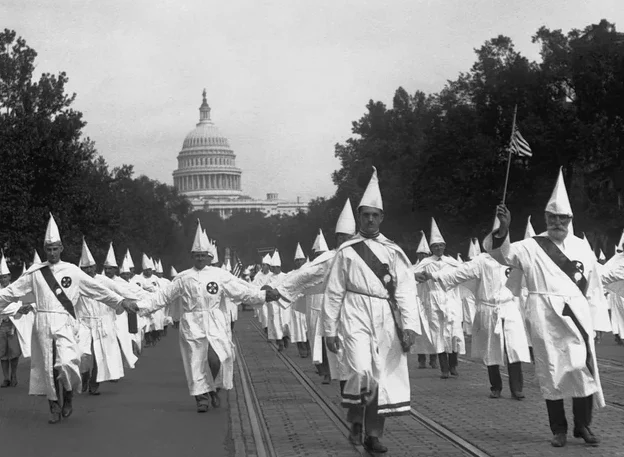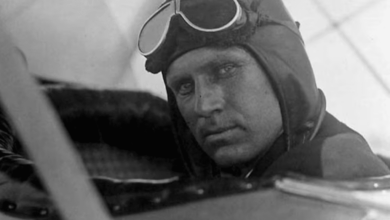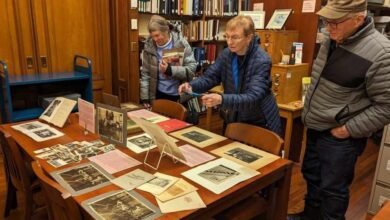1920s: The KKK in Essex & Warren Counties


 There was no place in the Christian Church for racism, according to the Rev. Charles O. Judkins, longtime pastor of Christ Church Methodist in Glens Falls, NY. “You don’t belong in the church if you are a Klansman,” Judkins proclaimed at the annual Methodist Troy Conference in 1925.
There was no place in the Christian Church for racism, according to the Rev. Charles O. Judkins, longtime pastor of Christ Church Methodist in Glens Falls, NY. “You don’t belong in the church if you are a Klansman,” Judkins proclaimed at the annual Methodist Troy Conference in 1925.
Judkins was a prominent pastor, theological scholar, social justice advocate, and political influencer who frequently traveled to make speeches at urban cities.
Judkins’ proposed adding language specifically condemning the racial nature of the Klu Klux Klan and the social class philosophy of the Communist Party to a resolution being debated on “the state of the nation,” The Glens Falls Times reported on April 21, 1925.
The Rev. R. G. Finley of Ticonderoga, among the opponents of Judkins’ proposal, suggested that KKK sympathizers could use the resolution as “propaganda” that Methodists were intolerant.
“I for one refuse to listen, as I am convinced it [Judkins’ resolution] means no good to the people of our beloved country,” Finley said. Finley and others joined in passing a motion, by a vote of 65-59 to remove specific references to the KKK and Communist Party from the proposed resolution.
Judkin’s argued that it would weaken the resolution.
“Why not call it by its name? We do not call the devil a gentleman. We do not call intemperance by any other name,” he chided. “We call them by their right names when we line up ourselves to combat them.”
At Glens Falls, Walter S. Stanley defended the KKK in an April 22 letter to the editor of The Glens Falls Times.
“It is hard to hold respect for such a person,” he wrote, referring to Judkins. “I thought this was a free country that everyone had a right to live, breathe and join any society he might choose.”
Stanley wrote that he was not a KKK member, but he felt Judkins criticism of the organization was elitist.
“Why always agitate?” Stanley asked. “He will live to see the day when he will be grateful to the Ku Klux Klan for bringing the American people to see Americanism as it should be and will be sorry for these remarks, if he has got a soul.”
KKK organizing was active in Essex County at the time.
“It is unofficially reported that both the villages of Crown Point and Ticonderoga have a large number of the Ku Klux Klan and that regular weekly meetings are being secretly held in both of these places,” the Ticonderoga Sentinel reported on Jan. 22, 1925. “It has also been rumored that a large meeting of members from every community in this section was held in a hall near Crown Point, and that the number of Klansmen in Ticonderoga alone exceeds three hundred.”
Activity also was reported at Westport. “The Ku Klux Klan seems to be steadily working its way into Essex County,” the Sentinel reported on Feb. 19. A Klan group recently organized at Westport had around 40 or 50 members. “As usual with the Klan, there is strong opposition to it, and it is not probable that its membership will reach large proportions.”
The Adirondack Journal of Elizabethtown on Jan. 23, published a letter to the editor, republished in the Sentinel on Feb. 19, which labeled the KKK as “outlaws” with a “chief object to again sow the seed of religious hatred which had been dead and forgotten for hundreds of years.”
The letter, attributed “a reader” without naming the writer, suggested that the KKK was secretly backed by communists in foreign countries. The writer chided the KKK for its secretive nature.
“There isn’t a case on record where we have refused to listen to any speakers, no matter what the subject, so long as if it was clean, if he came to our hamlet in daylight, in the open and on the level,” wrote the reader who disclosed his own identity. “But when a speaker appears with his head bagged and in the dead of night, I, for one refuse to listen, as I am convinced it means no good to our people of our beloved country.”
On March 4, The Glens Falls Times reported a group of Essex County KKK opponents had asked the state Secretary of State to require KKK organizations at Ticonderoga and Westport to disclose their membership lists, based on a state transparency law.
KKK activity had also surfaced in Northern Warren County. “The Klu Klux Klan, or someone impersonating them, burned a cross at Sodom [in the town of Johnsburg] Tuesday night at about 8 o’clock, which was witnessed by a number of residents,” the North Creek Enterprise reported on April 23.
“This is the third cross which has been burned in the vicinity. One at North Creek about three weeks ago, one at Bakers Mills last week, and the one at Sodom this week.”
Read more about white supremacy in New York State.
Illustration: Ku Klux Klan members march in Washington, DC, on August 9, 1925.
Source link




